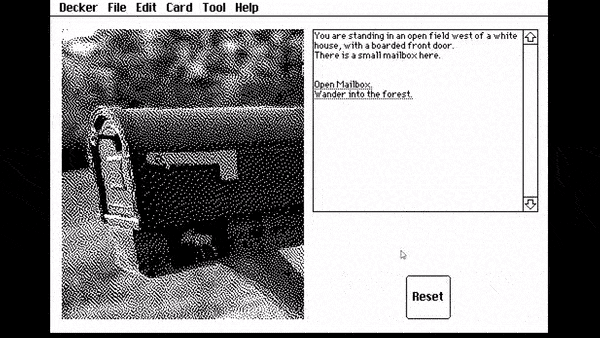By default, Lil fragments in a Ply passage execute in an isolated scope that only has access to variables defined among passages and the variables I explicitly note in the documentation, which means no references to the widgets on the current card, the deck, etc. This is an important default, because otherwise it would not be possible to run these scripts in the stripped down "standalone" environment of the Twine Story Format where no surrounding deck exists.
You can get around this in several ways if you want to; for example you could modify the "Twine Player" example and install references to deck parts, functions, or anything else you want via the third "vars" argument to twee.render[]; you just have to explicitly opt into the things you want, and once you start doing this your stories will no longer work in Twine or the plyPlayer contraption:
# instead of this... r:twee.render[story.value there vars.data] # ...you could do this... v:vars.data v.deck :deck v.print:print v.pi :pi r:twee.render[story.value there v]
It's not a great idea to put function-calls with side effects in here, since all the fragments of a passage will be re-executed every time you revisit or refresh the passage. Beware!
From an "outside-in" perspective you could also naturally have other controls and scripts in the deck tweak or consult the flags this example stashes in the "vars" field.
Another way of making stuff happen in response to the player's actions is to add logic to the "link[]" event for the field where the rtext is rendered. In the "Twine Player" example there's some code that consults the current passage's "tags" and alters the "show" and "align" properties of the field:
# bonus: tag-based formatting cues: p:(story.value.name dict rows story.value)[there] output.show:if "inverted" in p.tags "invert" else "solid" end output.align:if "center" in p.tags "center" elseif "right" in p.tags "right" else "left" end
You could have any sort of logic you want consulting the name, tags, or metadata of the just-visited passage.
If you use the plyPlayer contraption you're more limited, but it still offers a user-interceptable event if you edit the script of the contraption instance. The built-in example updates the "location" label to reflect the current passage name:
on passage name body tags meta do location.text:name end


